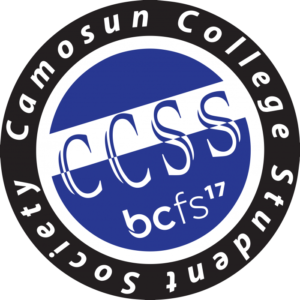The Camosun College Student Society (CCSS) has been fielding more requests than usual from students wanting to opt out of mandatory student fees this semester.
Through their student fees, every student at the college contributes to, for example, a building fund and the Student Refugee Program and contributes to a recycled paper fee; they also pay into fees to be part of the Canadian Alliance of Student Associations and the British Columbia Federation of Students (Nexus is also funded primarily through student fees). CCSS executive director Michel Turcotte says that at the start of every semester, the CCSS receives requests to opt out of certain student fees such as the UPass ($20.25 per student per month), Athletics ($4.73 per student per month), and Child Care ($1.16 per student per month). Turcotte says that there have been more requests to opt out this semester than there usually is, and that the CCSS understands why.
“We appreciate the frustration that students are feeling taking classes online, and then looking at the tuition and the fees that they’re paying and seeing that they’re identical to what they would have paid for being in class,” says Turcotte. “Many students feel that that’s a different situation and wonder why they should be paying the same.”
Students pay $49.19 per month for student fees through the CCSS; this includes the $20.25 per month for the UPass, which students can opt out of if they meet the requirements. Some of the fees, such as Athletics, flow through the CCSS but the CCSS doesn’t get any of the money. Students are now also paying a Student Services Fee of $11.35 per month that goes to Camosun, not the CCSS.
Turcotte says that while the duties of the college and the student society remain the same as they were before the COVID-19 crisis, they have also tried to make the online student experience as similar as possible to a normal, in-person student experience.
“In doing that, there really isn’t a lot of cost savings for us,” he says. “We still need to have staff to represent students, and the student society does not make a cent off the [U-Pass], for example. We administer. That money just passes through. And students have saved millions of dollars over the last 20 years because of the UPass, and so we are just trying to ensure that that program remains viable for when COVID ends.”
While some institutions, such as the University of Victoria, have not charged students this semester for bus passes, Turcotte says Camosun is set up differently; it is contractually obligated to continue with the UPass. Changing it would require changing the contract. He says it’s hard to say if or when the CCSS will deem the number of students using services—which, says Turcotte, has presumably decreased due to COVID-19—as no longer proportionate to the overhead cost. Turcotte says that the CCSS are actually hoping to offer students more services and to improve current services.
“We are actually in the process of seeking to open up more services… and improve the way in which our services are offered,” says Turcotte.
The new services the CCSS is looking at implementing won’t create more cost to students, says Turcotte.
“We’re trying to move to offering more services directly; just like [how] we handed out the bus passes, and gave people CamFest gift bags,” he says, adding that the CCSS is “strongly advocating for the needs of our members at various levels around the college.”
The CCSS staff is as busy as ever, says Turcotte, because in addition to having to deal with everything new that COVID-19 has brought with it, it is still dealing with the usual advocacy work it does, as well as administering the health and dental plan, and all the other services that it usually offers that are still being offered during COVID-19.
“So the reality is that we are busier than normal,” he says. “I think the same would also hold true for college employees, because you’ve added a whole new dimension to peoples’ workload.”
However, Turcotte says he understands where those wanting to opt out of fees are coming from. Students, for example, may look at a fee for child care and think, “Why am I paying for child care when no one’s on campus?”
“But the child care centres are still open,” says Turcotte. “The student society is striving to ensure that students get very good value for the money that they pay in fees.”
For more information on student fees, see camosunstudent.org.

